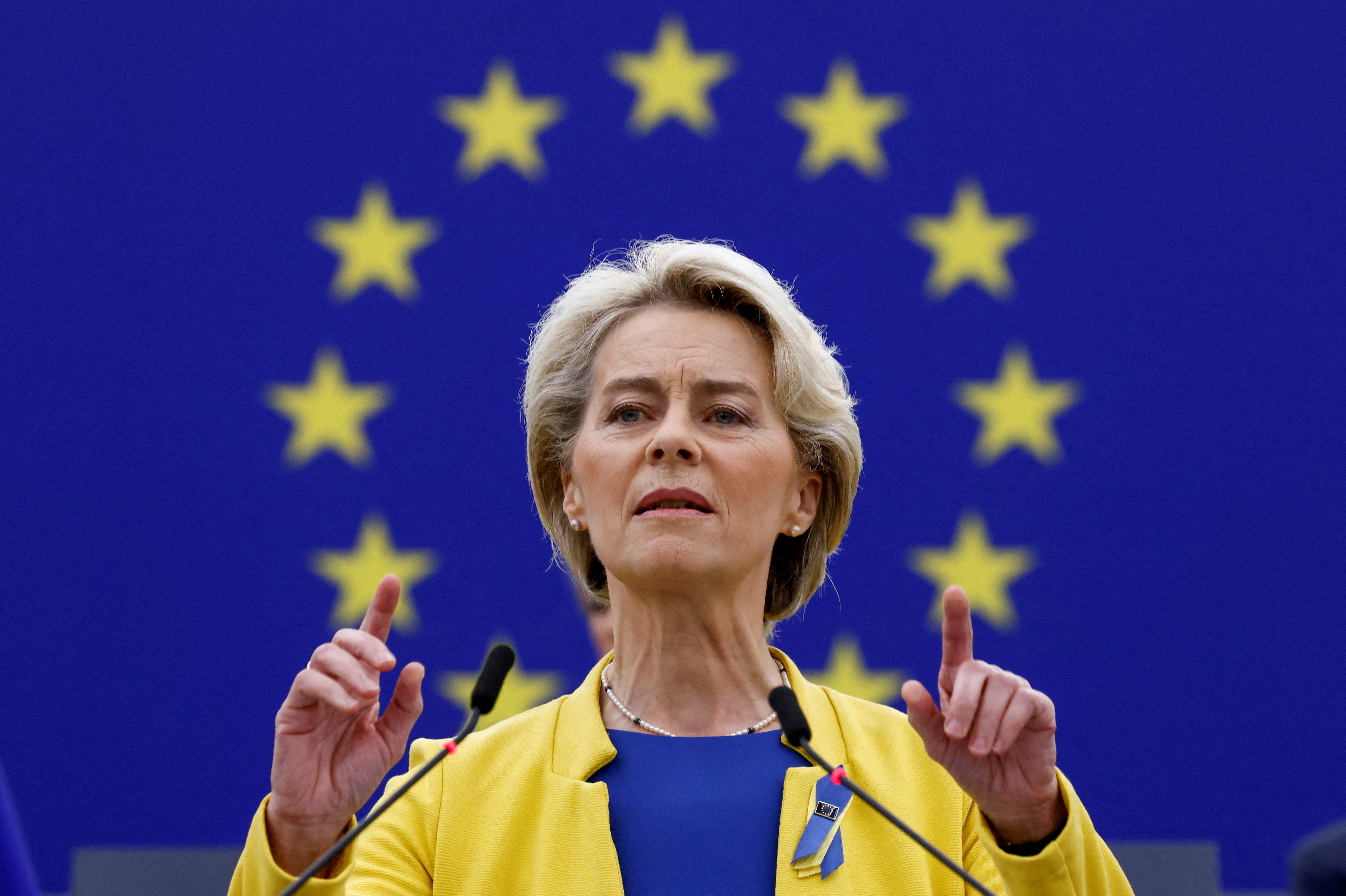The UK is out of the EU – but we still can’t escape it
Letters to the editor: our readers share their views. Please send your letters to letters@independent.co.uk

As the UK prepares to go to the polls, elections are taking place for the European parliament – the first in which the UK will not be participating since the catastrophe that was Brexit.
It is a massive exercise, representing the second-largest democratic electorate in the world, with about 373 million voters eligible to vote. Parties on the far-right are predicted to make major gains, including the likes of Rassemblement National in France. It will likely mean the next European parliament will lean further to the right.
It is naive to believe that the election results won’t affect Britain. We will most definitely feel the impact: the predicted Labour-led UK government can expect a harder ride from a right-leaning EU.
Such a hardline approach may prove to be a sticking point to deeper cooperation not just in trade, but in other areas such as climate change, artificial intelligence, immigration and the war in Ukraine.
Whatever the outcome of these elections, we should not disregard the impact they will have on relations with our neighbours.
Alex Orr
Edinburgh
Honesty is Labour’s best policy
It is vitally important that Labour leader Keir Starmer preserves his as-yet untarnished reputation for honesty and integrity. We’ve already seen it, during “Beergate”, when he promised to step down as party leader if he had been found to have broken lockdown rules during Covid.
Now, he must challenge and expose Rishi Sunak’s bogus £2,000 tax claim against Labour. If left to fester, such a manufactured charge, cobbled together from assumptions and dubious Tory office data, risks sticking in the minds of voters.
After all, it was the failure to demolish similar Tory scares over Labour tax-and-spend policies that cost the party the 1992, 1970 and 1959 general elections.
Paul Dolan
Northwich
A VAT lot of good for schools
The question of imposing VAT on private schools was raised once again during the recent leaders’ debate. The benefits and consequences will have been closely analysed but, like all government policy, only time will tell what overall impact it will have.
Clues, however, may be gleaned from previous initiatives. The abolishment of schools’ direct grant status in 1976 caused upheaval, but didn’t seem to diminish demand for private education; likewise, the phasing-out of assisted places in the late 1990s.
Much has been said about the impact of Labour’s new VAT policy on families with modest incomes. Regardless of the need for greater equality in taxation, implementation should be phased on over, say, five years, so that existing children are subject to minimum disruption while parents assess whether they can afford the increased cost before sending children to private schools in the first place.
This approach would allow both the state and private sectors to make necessary adjustments to their operations without falling off a funding cliff.
David Smith
Taunton
The real cost of education
Both parties agree that more apprenticeships are needed. Given that our brightest youngsters finish their degree courses with a £57k debt, only then to be priced out of doing a masters, how is it fair that apprentices won’t be charged for their learning? Or will they?
One of the greatest barriers to social mobility is the shocking way we treat our graduates. Accrued debt is irrelevant to the wealthy. The toll this burden takes on our students’ mental health mustn’t be underestimated – nor should the negative cost it has to wider society.
Richard Whiteside
Halifax
Green power to the people
Public support for climate action is clear. But the government has dragged its feet, missing multiple chances to cut energy bills by shifting energy policy towards clean power. Correctly executed, GB Energy has the potential to be brilliant. Politics aside, it signals a bold, fresh approach and promises vital investment in the diverse range of technologies we need to decarbonise the energy system.
We hope to see GB Energy carve a clear path for decarbonising energy-intensive businesses, in addition to the electricity consumed by households. Renewable energy delivered to businesses by private wire has the potential to slash energy costs, making UK businesses more competitive and boosting the economy. It can also reduce strain on an already problematic energy network, giving additional energy resilience to the UK. We need policies that foster stronger partnerships between clean energy developers and the government to facilitate physical and virtual power purchase agreements. These agreements will secure a stable market for renewables, drive investment and kick-start vital projects.
We have dithered enough. The public demands bold leadership in the fight against climate change and rising energy costs, and we’re encouraged to see early signs of decisive action.
Phil Thompson
CEO of Balance Power






Join our commenting forum
Join thought-provoking conversations, follow other Independent readers and see their replies
Comments